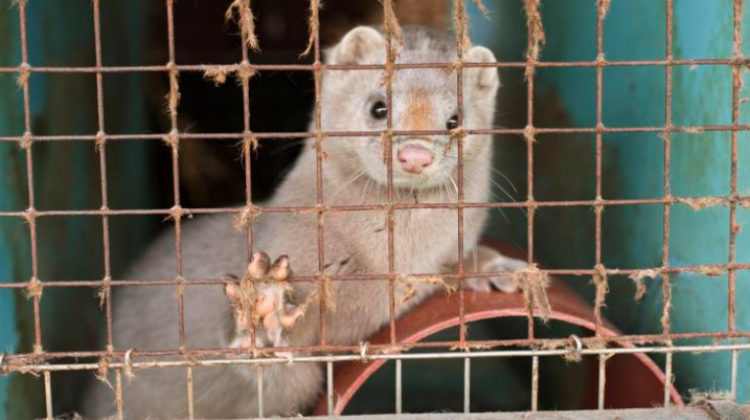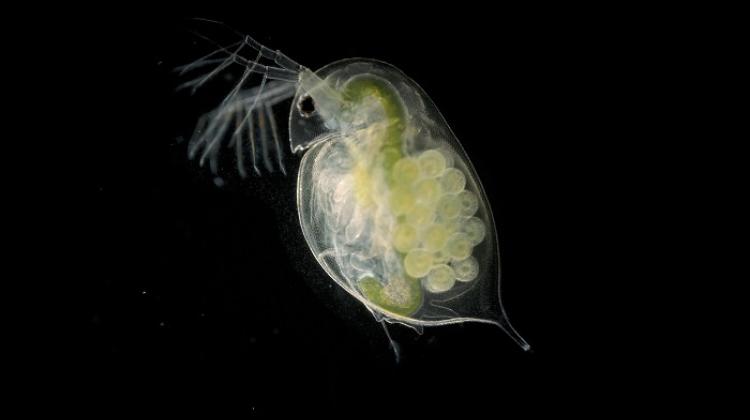Letter of scientists: We postulate shutting down fur farms
 Fot. PAP/ Lech Muszyński 22.04.2017
Fot. PAP/ Lech Muszyński 22.04.2017
130 people of science signed an open letter addressed to the MPs, in which they postulate shutting down fur farms. Mink and fox are territorial animals; cage breeding causes their suffering and does not meet the ethological needs of these wild predators - scientists write.
In November 2017, a draft amendment to the Law on Animal Protection was submitted to the Sejm by a group of PiS deputies. It provides for introducing a ban on breeding and rearing fur animals with a goal to obtain fur. The ban would enter into force on January 1, 2022. Representatives of the fur industry oppose these provisions.
Representatives of the scientific community addressed the problem of breeding fur animals in an open letter addressed to the MPs. In their letter, they share the scientific view on the conditions offered to animals by contemporary fur farms in relation to the needs of these species of animals. The letter was sent to PAP by representatives of the foundation "Open Cages" (Otwarte Klatki).
The signatories of the letter include the chairman of the Polish Ethical Society Prof. Tadeusz Gadacz from AGH UST in Kraków, as well as deans of faculties of biology at the University of Warsaw (Prof. Agnieszka Mostowska) and the University of Zielona Góra (Prof. Beata Gabryś). The letter has also been signed by naturalists, ethicists, philosophers and sociologists.
The authors of the letter mention that the list of species of animals farmed in Poland exclusively for furs is dominated by predators: American minks, silver foxes, Arctic foxes and raccoon dogs.
"While zoological gardens have put in a lot of effort and resources in recent years to adapting living conditions to the needs of animals, wild predators on fur farms are crowded in small cages that fail to meet their ethological needs" - the letter reads.
Scientists report that American minks and foxes are territorial animals, the natural territory of which is several hundred hectares, and in the case of polar foxes even tens of square kilometres. These animals regularly roam their territories, build burrows and hunt. Scientists point out that minks, in turn, are solitary, semi-aquatic animals that spend most of their time in or near water.
"Therefore, any form of cage breeding can not possibly meet the ethological needs of these wild predators - especially when it comes to the need to explore, move, build burrows, and in the case of mink also the need to swim and have access to water. The diagnosis that cage breeding causes the suffering of these animals is therefore justified" - the scientists write. They add that this is also the case when the state authorities' inspections do not identify any serious deficiencies under the current veterinary regulations.
"Furs definitely had an irreplaceable meaning for man and his survival in the past, but today they are a mere fashion whim" - write the authors of the letter.
"We are convinced that commercial breeding of wild predators in cages fundamentally contradicts modern knowledge about the needs of these animals, and because of the minimal importance of this industry to the 21st century society, we postulate shutting down farms of this type" - the letter reads.
The solutions contained in the draft amendment to the Law on the Protection of Animals include strengthening the legal protection of animals, introducing the obligation to mark dogs and establishing a central register, a ban on farming animals for fur and using animals in circuses. The authors state that the draft amendment is a result of social demands, suggestions of bodies that monitor compliance with the provisions of the Law on the Protection of Animals and recommendations of the Supreme Audit Office. (PAP)
Author: Ludwika Tomala
lt/ ekr/ kap/
tr. RL
Przed dodaniem komentarza prosimy o zapoznanie z Regulaminem forum serwisu Nauka w Polsce.















